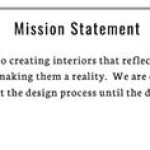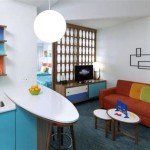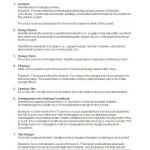Interior Design Guide: Transforming Your Living Spaces
Interior design is the art and science of enhancing the interior of a building to achieve a more aesthetically pleasing and functional space. It involves a blend of creativity, technical knowledge, and an understanding of human behavior. Whether you're embarking on a complete home renovation or simply looking for a few design tweaks, this guide will furnish you with insights and practical advice to transform your living spaces.
Defining Your Design Style
The first step in interior design is to establish a clear vision for your space. This involves determining your personal style and preferences. Some popular design styles include:
- Modern: Clean lines, minimalist furniture, and a focus on functionality.
- Contemporary: Similar to modern but incorporates current trends and textures.
- Traditional: Characterized by classic furniture, rich colors, and ornate details.
- Scandinavian: Light, airy spaces with natural materials and muted colors.
- Bohemian: Eclectic and free-spirited with a mix of patterns, textures, and vintage pieces.
Consider browsing design magazines, online platforms, and visiting showrooms to gather inspiration and pinpoint your preferred aesthetic. A mood board, featuring images, color swatches, and fabric samples, can help you visualize your design goals.
Planning the Layout and Functionality
Once you have a design style in mind, it's crucial to plan the layout and functionality of your space. This involves:
- Traffic flow: Assess how people will move through the room and ensure there is adequate space for circulation.
- Zoning: Divide the space into distinct areas based on their function, such as a living area, dining area, or work zone.
- Furniture placement: Consider the scale and shape of your furniture and arrange it strategically to optimize the room's flow and functionality.
- Storage solutions: Plan for adequate storage to keep the space organized and clutter-free.
Creating a floor plan or using room-planning software can help you visualize different layout configurations and make informed decisions.
Choosing Color Palettes and Materials
Color plays a significant role in creating a desired atmosphere. Consider the following factors when selecting a color palette:
- Mood: Light colors can create a feeling of spaciousness and airiness, while darker colors evoke a sense of coziness and intimacy.
- Natural light: Rooms with ample natural light can accommodate bolder colors, while dimly lit spaces may benefit from lighter tones.
- Function: Consider the room's purpose when choosing colors. For example, a kitchen might benefit from bright and cheerful colors, while a bedroom could be designed with calming hues.
Materials are equally crucial. Think about the durability, aesthetics, and sustainability of your choices. For example, natural materials like wood, stone, and wool add warmth and character.
Consider consulting with an interior designer for professional guidance on color schemes, material selections, and creating a cohesive design plan.

2024 Interior Design Guide Palomarin Decor

How To Design A Room Like An Interior Designer Step By Greenhouse Studio

A Guide To Interior Design Styles How Find Your Unique Home Decor Style Primer

Interior Design Furniture Client Guide Template Tips Decor Ping List Mood Board E For Designers

The Complete Guide To E Design With An Interior Decorator Courtney Turk Interiors Services

Decorating Style Guide A Recent Project

Interior Design Planning To Succeed S Publishing Us

Interior Design Inspiration A Complete Guide To Creating Spaces Part 1 Grace In My Space

Top 10 Interior Design Styles Guide To Each Style The Architects Diary

An Interior Designer S Guide To Working With A Receiving Company Oasis








